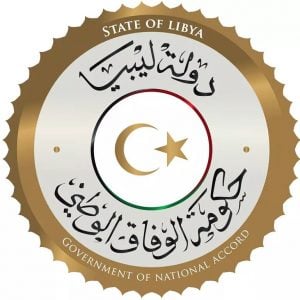By Sami Zaptia.

London, 13 April 2020:
Forces aligned to the internationally recognized government of Libya based in Tripoli announced the capture of the western cities of Sabratha and Surman today. The two cities lie about 80 and 70 km west of the capital Tripoli and about 100 km from the Tunisian border to their west.
At the time of publication they claimed they were combing surrounding cities and towns. These regions are traditional allies of Hafter. There has been no official comment from the Khalifa Hafter-led Libyan National Army (LNA).
They claimed they had met little resistance from pro Khalifa Hafter forces, who had been in nominal control of the two coastal cities. They have also displayed weapons and armaments, including tanks and grad missiles, they claim they had captured from the fleeing pro Hafter forces.
This comes on the back of unconfirmed claims yesterday by both sides of advances on the Abu Grain front, south east of Misrata. The pro Hafter LNA did admit to the loss of a fighter plane and the death of its crew.
The proactive operations by the forces protecting Tripoli come as part of their ‘‘Peace Storm’’ operation launched on 25 March to go on the offensive after what they saw as the continued truce-breaking of the Hafter forces which had resulted in “civilian casualties, including children and women”.
Celebrating these apparent successes on the ground, the internationally recognized Libyan Prime Minister, Faiez Serraj, said that the Hafter forces had ‘‘failed’’ to counter his forces’ Peace Storm operation by attacking Abu Grain.
Taking a swipe at the international interventionist backers of Hafter, Serraj said that his aligned forces had faced “legions pushed by capitals that displayed loyalty to us by day and conspired against us under the cover of darkness”.
He warned these “conspiratorial capitals” that your “sons who you sent to die in the aggression on our land will be returned to you in coffins with their documents of proof of identity, and we will issue our orders to the Ministry of Foreign Affairs to coordinate with the relevant authorities.”
On claims that Emirati armoury was captured in Surman and Sabratha, Serraj added that “Your armoury that you sent has become ashes, and what has survived of them is in our grasp and we will display them in the war museum. Your munitions that killed our children, your planes that destroyed our cities, and also your arrogance – your people will hold you accountable for it before we do.”
He added that his aligned forces were moving on to liberate the ‘‘kidnapped cities’’ (nominally under the control of or aligned or sympathetic to Hafter) to extend the authority of the state (internationally recognized authorities in Tripoli) to its entire territory, sea and skies.”
While warning that any short term claims of progress by forces defending Tripoli should be seen in the perspective of the ongoing ebb and flow of the Tripoli war since April 2019, military analysts say that the recent advances by forces defending Tripoli could be seen as the positive effect of Turkish intervention. They say that Turkish intervention seems to have negated – if not reversed in the opposite direction – any military air superiority of the Hafter forces.
It will be instructive to see over the coming weeks if this is a pivotal point in the war for Tripoli or a continuation of the year-long cat-and-mouse trend.









